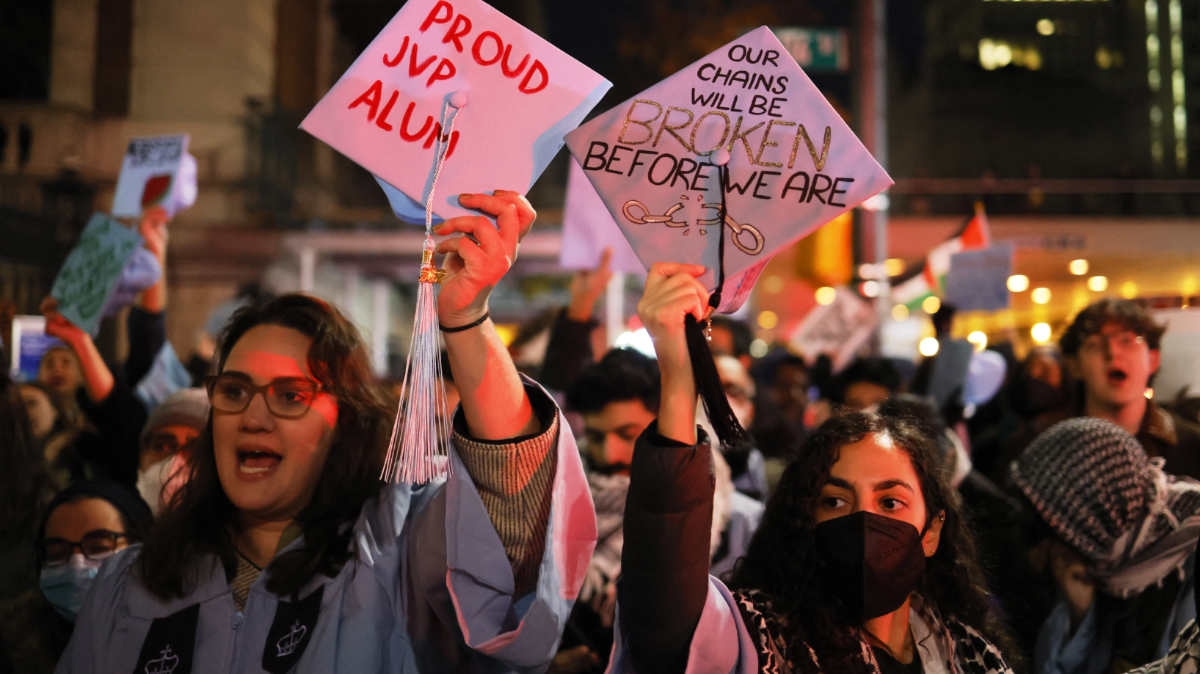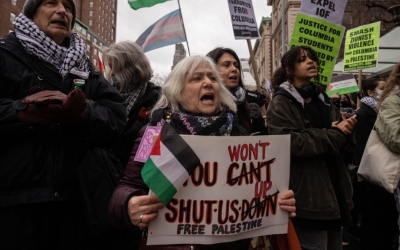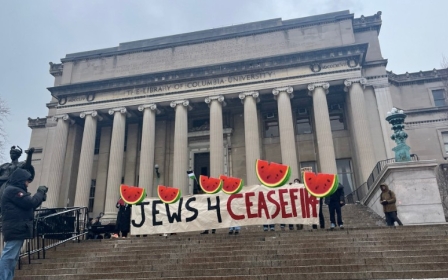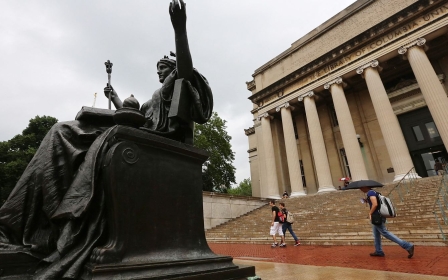'Columbia is making us homeless': Students evicted for hosting Palestinian event

Columbia University indefinitely suspended four students and evicted them from university housing after they attended an “unauthorised” pro-Palestinian event on campus.
The event, called “Resistance 101”, featured Khaled Barakat, who some allege is a former senior official from the Popular Front For The Liberation of Palestine (PFLP).
The secular, Marxist movement is engaged in armed fighting against Israel in both Gaza and Lebanon and has been labelled a “terrorist organisation” by the European Union, the US and Canada. Barakat, who is based in Canada, denies involvement with the group, which shot to international prominence in the 1970s under its Palestinian founder, George Habash.
Columbia initially suspended six students for hosting the panel discussion at the university’s residence hall but lifted the ruling on two of them. According to the Columbia Spectator, the suspension cited the students violating the university’s standards and discipline guidelines.
The evicted students spoke out against Columbia’s decision at a separate pro-Palestinian event on Thursday called “All Out for Al-Shifa”, a reference to the hospital in Gaza that has been repeatedly attacked by Israeli troops.
Stay informed with MEE's newsletters
Sign up to get the latest alerts, insights and analysis, starting with Turkey Unpacked
“I stand before you today as one of the six Columbia students unjustly and inhumanely suspended from Columbia as of 8 pm last night,” one student speaker said at the event. “Columbia is making us homeless, taking away our campus jobs, our sole source of income, taking away our scholarships, our access to dining halls, our access to classrooms and education that we have earned.”
The move to suspend the students marked the latest chapter in Columbia University’s tussle with students espousing pro-Palestinian views.
In March, the New York Civil Liberties Union, in collaboration with Palestine Legal, filed a lawsuit against Columbia for the suspension of Students for Justice in Palestine (SJP) and Jewish Voice for Peace (JVP) chapters.
Pro-Palestinian students have accused Ivy League schools like Columbia of silencing their support for Palestine amid Israel’s war on Gaza. But the schools have also come under pressure from the opposing, pro-Israel side which accuses the schools of allowing antisemitic discourse and silencing students and professors supportive of Israel.
In January, the US House Committee on Education and the Workforce issued a series of letters to Harvard University, Columbia, MIT and the University of Pennsylvania, requesting they provide the committee with documents related to the schools' "response to antisemitism on its campus”.
At the same time, Jewish students calling for a ceasefire in Gaza have reported being harassed on campus. In January, eight students - including members of the JVP - were hospitalised after an attack with an illegal chemical-based weapon, known as skunk water, during a Gaza rally.
Out of the US’s eight Ivy League schools, Columbia is generally considered to be one of the more permissive towards pro-Palestinian voices, including among high-profile faculty members.
Columbia’s president, Minouche Shafik, staunchly defended the decision to suspend and evict the students, noting that Columbia had barred the Resistance 101 event twice already, saying it promoted speakers “known to support terrorism and promote violence”.
“I want to state for the record that this event is an abhorrent breach of our values,” she said.
Middle East Eye delivers independent and unrivalled coverage and analysis of the Middle East, North Africa and beyond. To learn more about republishing this content and the associated fees, please fill out this form. More about MEE can be found here.





